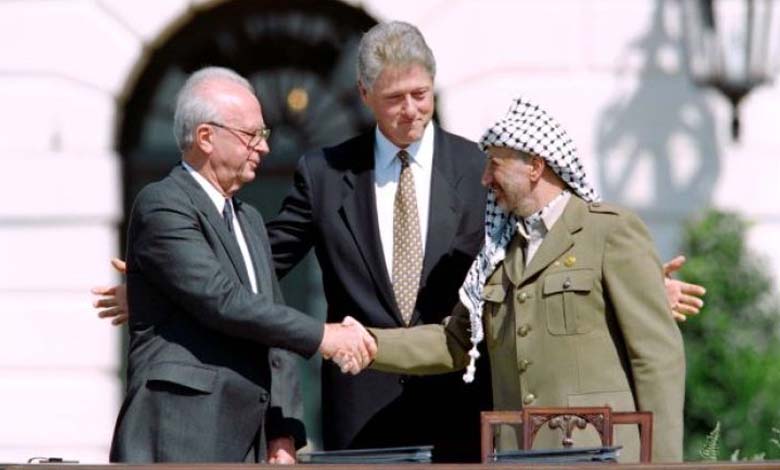Gaza War Ends “Validity” of Oslo Accords
One of the architects of the agreement between the Palestinian and Israeli sides confirms that the only possible solution to the ongoing war between Israel and Hamas will come from outside

Norwegian Jan Egeland, one of the architects of the Oslo Accords intended to lead to “peaceful coexistence” between the Israeli and Palestinian states, believes that these agreements are no longer suitable “at all” and that the solution to the current war requires “extremely weak” international leadership at present.
September 13, 1993 entered history when Palestinian leader Yasser Arafat and Israeli Prime Minister Yitzhak Rabin shook hands in the White House gardens in the presence of U.S. President Bill Clinton.
This event marked the culmination of 14 rounds of secret talks in Oslo organized by Norwegian Jan Egeland, who was then the State Secretary at the Norwegian Ministry of Foreign Affairs.
This kick-started a delicate process whereby Israel and the Palestine Liberation Organization were to mutually recognize each other and establish a transitional Palestinian self-rule for five years, deemed an appropriate period to finalize agreements on crucial issues such as the status of Jerusalem, settlements, the fate of refugees, and others.
After 30 years of these agreements and as Israel faces Hamas since October 7 in a bloody war in Gaza, Egeland, 66, believes that the Oslo Accords are “completely” dead.
He states in an interview with AFP: “The Oslo Accords no longer exist in themselves. Now we will need another agreement, and it will have to be coordinated between the United States, the European Union, and the Arab countries.”
The former diplomat, now the Secretary-General of the non-governmental Norwegian Refugee Council, believes that the only possible solution to the ongoing war between Israel and Hamas will come from outside.
He adds: “It is not possible for Israel and Hamas to negotiate alone about the future of these lands. There will be no trust: Israel is working to destroy Hamas while Hamas is there to eliminate Israel.”
He continues: “Leaders on both sides are never at the level of the leaders who were in the Oslo Accords era, who had vision and were strong and true leaders. Today, we have populists on both sides, already.”
On one of the walls of the room where he met AFP, pictures show Egeland shaking hands with Yasser Arafat and former U.S. President George Bush.
The war erupted after a surprise attack by Hamas on the 7th of last month that claimed about 1,200 Israelis, mostly civilians, most of them killed on the first day of the attack, according to Israeli authorities.
Israel launched intensive bombings on Gaza since October 27, accompanied by extensive ground operations within the territory. According to the Hamas government, the bombings have killed over 15,000, including more than 6,000 children.
Egeland says: “After that, there will be a lot of bitterness and hatred on both sides, and there will be more violence.”
He continues: “It is an illusion to think that Israel can achieve security and peace through bombs. It is an illusion to believe that we can solve the problem of Israel’s existence by deliberately killing Israeli civilians as Hamas does and by taking civilians hostage, but the international community is also not up to this task, according to Egeland, as it is led by an “extremely weak” leadership.
He wonders: “Where is the American, European, British, and French leadership, to truly help push towards a final settlement? The same question goes for the Arab side.”
He adds: “This is always the problem more or less: you are willing to criticize the enemy of your ally, but you are not willing to push your ally towards a settlement,” and for him, it is very important to resume talks with as much secrecy as possible.
He explains: “Secret communication channels and secret negotiations have a huge advantage, which is that the parties do not speak for show. They do not have to deal with any provocation or act of violence that happened yesterday or the day before. They can truly negotiate.”












